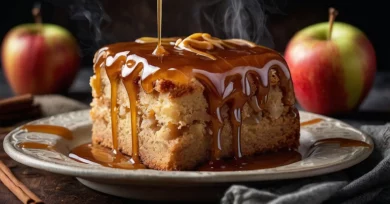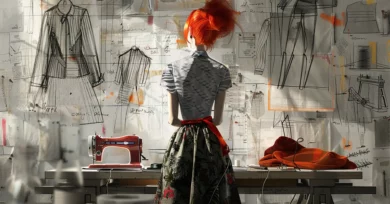French culture encompasses history, art, gastronomy, fashion, and philosophy. Its attraction has captivated all walks of life for millennia. French culture offers something wonderful and enlightening for everyone, such as Paris’ sophisticated elegance and the French countryside’s simple beauty. This in-depth research will allow us to explore the many characteristics that make French culture so appealing.
History of French Culture
French culture has a complicated, millennia-old history. The French Revolution popularised freedom, equality, and fraternity, while Gothic structures like Notre Dame show the skill and dedication of the Middle Ages. Every château, battle site, and cobblestone route has a tale of success, sorrow, and change, making French history a trip through time.
French Population
France will have 67.81 million inhabitants, according to INSEE. Statista estimates that 87.8% of those people were born in France, and 4.8% became citizens postnatally.
The Institut National d’Études Démographiques (INED) predicted that most citizens born outside France in 2020 were Algerian, Moroccan, Portuguese, Tunisian, Italian, Turkish, or Spanish.
Over 20% of the population is 65, whereas 24% is under 20. Statista predicts that 80.69% of French people will reside in cities. It is up significantly from 1960, when just 61.88 percent resided in cities.
Religion in French
Most French are Catholic. Over 41.6 million French respondents to an IFOP survey were Roman Catholics. Buddhism, Islam, and Judaism are other major faiths.
The CIA states that “France maintains a tradition of secularism and has not officially collected data on religious affiliation since the 1872 national census, which complicates assessments of France’s religious composition.” 33–42% of French citizens are atheists.
The Artistic Legacy
French culture has endlessly inspired artists everywhere. France has produced many famous painters, like Claude Monet, whose impressionist water lilies still astound viewers; Henri Matisse, a master of colour and design and Edgar Degas, who brilliantly depicted dance.
The Mona Lisa, a masterpiece of Leonardo da Vinci, is one of several unique masterpieces at Paris’ Louvre Museum. French cinema has an international influence. The original work of Jean-Luc Godard and François Truffaut has elevated French filmmaking.
Taste of French Culture
French culture emphasizes food and wine, and social events often include lengthy meals. Despite lighter food trends, many people still identify French cuisine with heavy sauces and difficult preparation.
Traditional French dishes include boeuf bourguignon, a stew made with beef braised in red wine and beef broth with garlic, onions, and mushrooms, and coq au vin, a dish made with chicken, Burgundy wine, lardons of pork fat, button mushrooms, onions, and (optional) garlic.
The family meal in France is crucial, even if “high cooking” (or “haute cuisine”) is associated with French food everywhere. The History of Food in France states that “authentic French cuisine represented by the family meal belongs to the people, and rhetorically to the provinces.”
It’s possible that French fries were created elsewhere. The term “French fry” comes from Thomas Jefferson, the American Minister to France from 1784 to 1789. French fried potato snacks were popular at the time. He brought the concept to America.
The French adore their cuisine, from the flaky croissants that break at the touch to the deep, comforting scents of coq au vin, were wine and chicken mix into culinary poetry. France’s regional cuisines reflect its various climates and surroundings. Bordeaux wine, made with years of winemaking knowledge, is a symphony of tastes, while Camembert cheese is a culinary masterpiece.
French Fashion
French haute couture is a cultural institution that represents France, not merely a business. Paris, home to Chanel, Louis Vuitton, and Dior, is the fashion center of the world. French ladies, known for their elegance, choose quality above quantity in their clothes. Their easygoing attitude is well described by “je ne sais quoi.”
Literary Excellence
French literature contains works by prominent authors. Victor Hugo’s epic “Les Misérables,” Albert Camus’ existentialism, and Marcel Proust’s “In Search of Lost Time” are still read worldwide. French literature is honored by honors like the Prix Goncourt. Writing may thrive in France’s welcoming climate, which encourages uniqueness and idea exchange.
Joie de Vivre
French people live by “joie de vivre” (the pleasure of living). It celebrates modest joys like coffee with friends in the morning or family picnics in picturesque parks. French people view the arts, music, and intellectual dialogue as fundamental to everyday life. French culture is lively and anchored in the present because they value the present.
French Language
French culture relies on the language’s elegance, clarity, and poetic beauty. It’s an art form, not just a way to communicate. Some consider French one of the most attractive languages due to its graceful cadence and big vocabulary. Learning French helps you understand their language and French culture. The French language accentuates delicacy and elegance, reflecting their sophisticated communication.
French Cultural Holidays and Customs
A multitude of festivals and ceremonies reflect France’s rich cultural past throughout the year. The French Revolution’s anniversary is celebrated on July 14 with enormous parades, fireworks, and other activities. Global artists attend the luxurious Cannes Film Festival, demonstrating France’s impact on the film industry.
The magnificent Nice Mardi Gras and Galette des Rois (King Cake) festivities surrounding Epiphany give further delight and cultural importance to the French calendar.
Architecture of French
France’s metropolises have a stunning modern architecture that merges history. The Eiffel Tower and Arc de Triomphe dominate Paris’ skyline. Beyond Paris, Alsace’s half-timbered villages and the Loire Valley’s great châteaux have ageless architecture. French urban planning creates functional and attractive cities.
Musical-Theatrical Harmony
French people respect music and performing arts. Ballet and opera aficionados go to Paris’ elegant Opéra Garnier. France culture has traditionally produced innovative musicians like Claude Debussy and electronic artists that stretch genre boundaries. Paris, a musical hub today, adopted jazz in the early 20th century. With its literary lyrics, plot, and evocative melodies, French chanson adds to the nation’s musical richness.
Education of French
France has a lengthy intellectual and educational heritage dating to the Enlightenment. For instance, Paris’ Sorbonne is a world-renowned university that focuses on academic discussion. French intellectuals Rousseau and Voltaire spread revolutionary ideals throughout Europe. French universities and research centers support innovation and analysis.
French philosophy and intellectual
French philosophy and intellectual debate have long affected Western thinking. French philosophers promoted reason, individuality, and human rights throughout the Enlightenment. Political theorists include René Descartes, Jean-Jacques Rousseau, and Montesquieu.
Intellectual and literary dialogues in Paris cafés like Les Deux Magots and Café de Flore molded contemporary thought and history. French philosophers still contribute to worldwide ethics, politics, and humanity issues.
French Cinema
France’s film industry shapes its identity. The country produced François Truffaut, Jean-Luc Godard, and Agnès Varda, who shaped filmmaking.
French cinema is known for its self-reflective storylines about human emotion and modern society. Films like “Breathless” and “Amélie” are cultural touchstones due to their lasting impact on audiences and their glimpses into French culture.
French’s Terroir
Due to its vineyards’ reputation for producing world-class vintages, France has become a symbol of premium wine. French winemakers use “terroir” to define a vineyard’s location, climate, and history. Bordeaux, Burgundy, and Champagne produce the world’s best wines, each with its style. Vineyard visits are a terrific way to learn about France’s agricultural heritage and meet its brilliant winemakers.
Diversity and Inclusivity
France’s modern culture reflects its welcoming society. Immigration has enriched French culture for generations. Lacité (secularism) in France promotes a pluralistic society where individuals of different faiths may live together. Urban French communities may have many cuisines, cultures, and languages.
Museums and Historic Sites
French society cherishes preserving its rich cultural legacy. The nation’s rich history may be learned at museums like Paris’s Musée d’Orsay (voted to Impressionist art) and Versailles (royal magnificence). From Roman remains in Provence to medieval fortresses in the Loire Valley to monuments recognizing the nation’s World War II bravery, France has several museums and historical sites.
Conclusion
French culture is a colorful mix of old and contemporary, ingenuity and elegance, and fun and reflection. Despite its evolution, its core concepts remain. Take in Paris’ bustling streets, a warm croissant, or French cities’ breathtaking architecture to experience a culture that values these aspects of life.
Remember that learning about French culture is a lifetime adventure that should teach respect for the art of living, the quest for knowledge, and human inventiveness. This voyage across a rich cultural environment that has yet to age shows the resilience of creativity, reason, and the human spirit. Accepting it with an open mind will teach you about yourself and another culture.
Read More:






